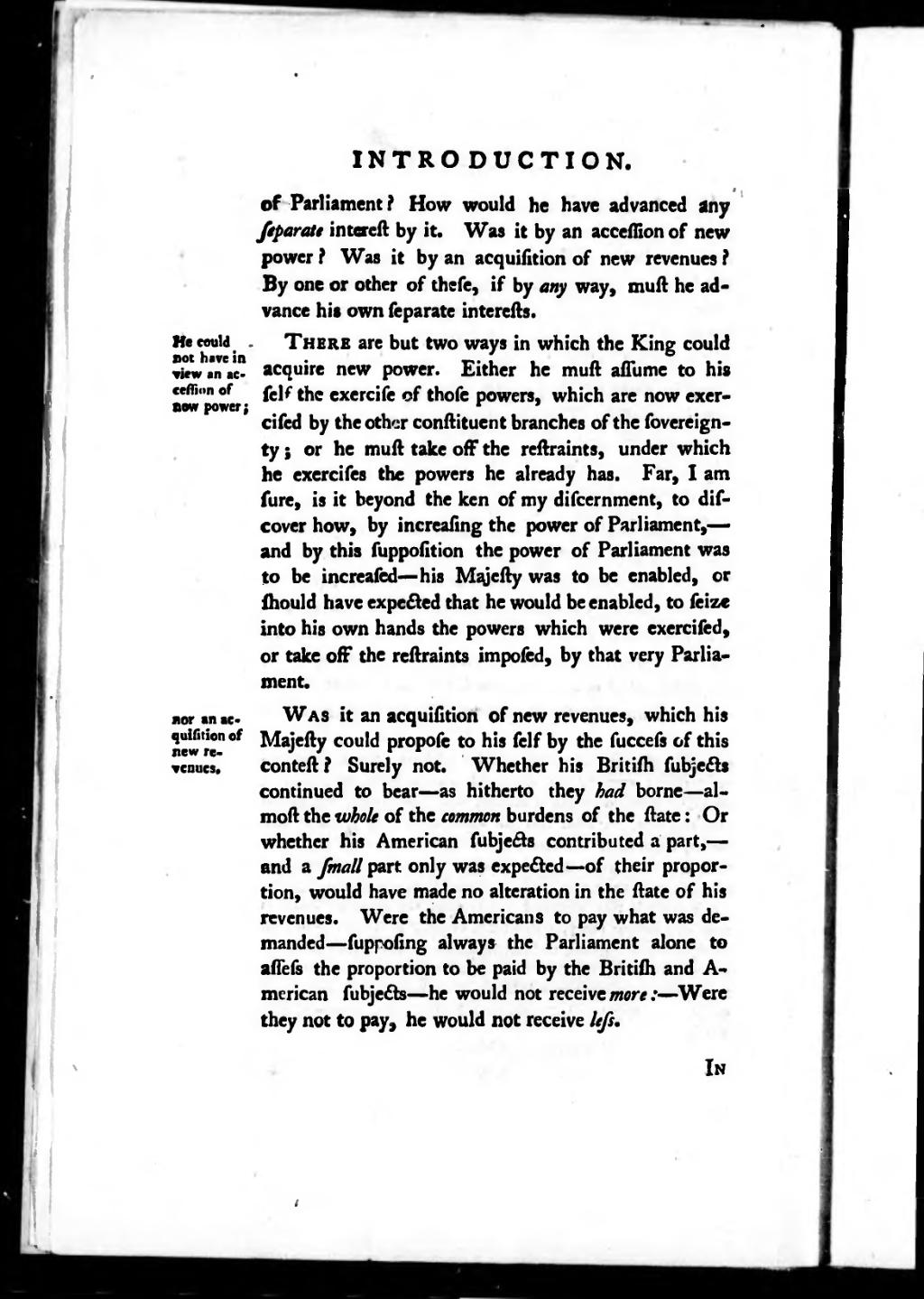INTRODUCTION.
of Parliament? How would he have advanced any ſeparate intereſt by it. Was it by an acceſſion of new power? Was it by an acquiſition of new revenues? By one or other of theſe, if by any way, muſt he advance his own ſeparate intereſts.
He could not have in view an acceſſion of new power;There are but two ways in which the King could acquire new power. Either he muſt aſſume to his ſelf the exerciſe of thoſe powers, which are now exerciſed by the other conſtituent branches of the ſovereignty; or he muſt take off the reſtraints, under which he exerciſes the powers he already has. Far, I am ſure, is it beyond the ken of my diſcernment, to diſcover how, by increaſing the power of Parliament,—and by this ſuppoſtion the power of Parliament was to be increaſed—his Majeſty was to be enabled, or ſhould have expected that he would be enabled, to ſeize into his own hands the powers which were exerciſed, or take off the reſtraints impoſed, by that very Parliament.
nor an acquiſition of new revenues.Was it an acquiſition of new revenues, which his Majeſty could propoſe to his ſelf by the ſucceſs of this conteſt? Surely not. Whether his Britiſh ſubjects continued to bear—as hitherto they had borne—almoſt the whole of the common burdens of the ſtate: Or whether his American ſubjects contributed a part,—and a ſmall part only was expected—of their proportion, would have made no alteration in the ſtate of his revenues. Were the Americans to pay what was demanded—ſuppoſing always the Parliament alone to aſſeſs the proportion to be paid by the Britiſh and American ſubjects—he would not receive more:—Were they not to pay, he would not receive leſs.
In

